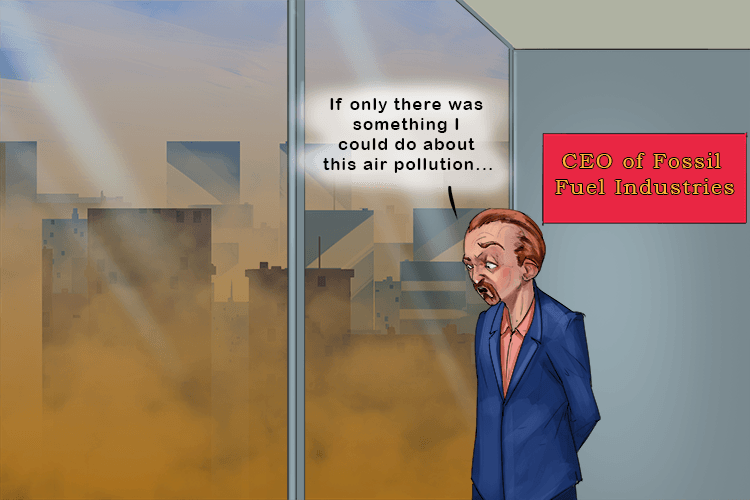Air Pollution – The presence or introduction of harmful substances into the air
The meaning of the term air pollution is self-explanatory, it's the spreading of pollution into the air.

Air pollution can have a significant impact in a number of ways, and at the same time, businesses can have a significant impact on air pollution.
Some of the ways that air pollution can impact businesses include:
- Increased operating costs: Air pollution can increase operating costs in a number of ways. For example, businesses may have to pay to upgrade their machinery to comply with emissions laws, or pay for ventilation systems to improve air quality in the workplace.
- Reduced productivity: Employees who consistently breathe polluted air are more likely to miss work or be less productive at work. Around 1.2 billion workdays are lost globally each year due to air pollution, India’s economy lost $95 billion alone due to this in 2019.
- Lost customers: Consumers are less likely to visit businesses in areas that experience high levels of air pollution.
- Damage to reputation: Any business not seen to be taking steps to address the issue of air pollution could be subject to public scrutiny.
The ways that businesses affect the levels of air pollution include:
- Burning fossil fuels: Businesses that burn fossil fuels, such as coal, oil, and natural gas, to generate electricity or power machinery emits harmful pollutants into the air.
- Manufacturing process: Businesses that manufacture goods emit a variety of pollutants into the air. These pollutants can be released into the air during the manufacturing process or when the products are used.
- Waste disposal: Businesses that dispose of waste in landfills or incinerators emit harmful pollutants into the air. These pollutants include methane, a greenhouse gas that is 25 times more potent than carbon dioxide, and dioxins, a group of toxic chemicals that can cause cancer and other health problems.
- Transportation: Businesses that operate a fleet of vehicles, such as trucks, buses and airplanes all contribute to air pollution.
There are a number of things that businesses can do to reduce their impact on air pollution, such as:
- Using cleaner energy sources: Businesses can try to maximise their use of renewable energy by installing solar panels and wind turbines.
- Improving efficiency: Businesses can improve the efficiency of their operations to reduce their energy consumption and emissions.
- Using pollution control technology: Businesses can install pollution control technologies such as filters and scrubbers to reduce the amount of pollutants they emit.
- Changing transportation practices: Introducing electric vehicles to replace fossil fuel-powered vehicles where possible can reduce emissions, as well as introducing employee carpool schemes.




